What Poverty Tourism Gets Wrong
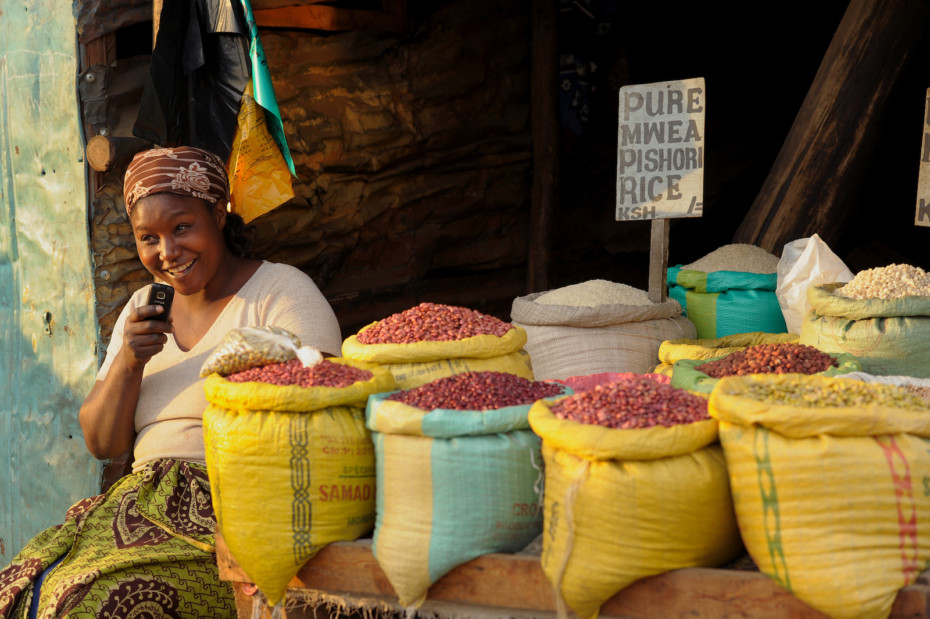
Is poverty tourism just a harmless way to gain insight into what it’s like to live in poverty? Sidney Muisyo explains the underlying and deeply flawed messages that slum tours are based on and can further ingrain in us. He also explains how you can visit an impoverished community in a way that is mutually honoring and beneficial.
Continue Reading ›It’s Love That Will Drive Out the Darkness
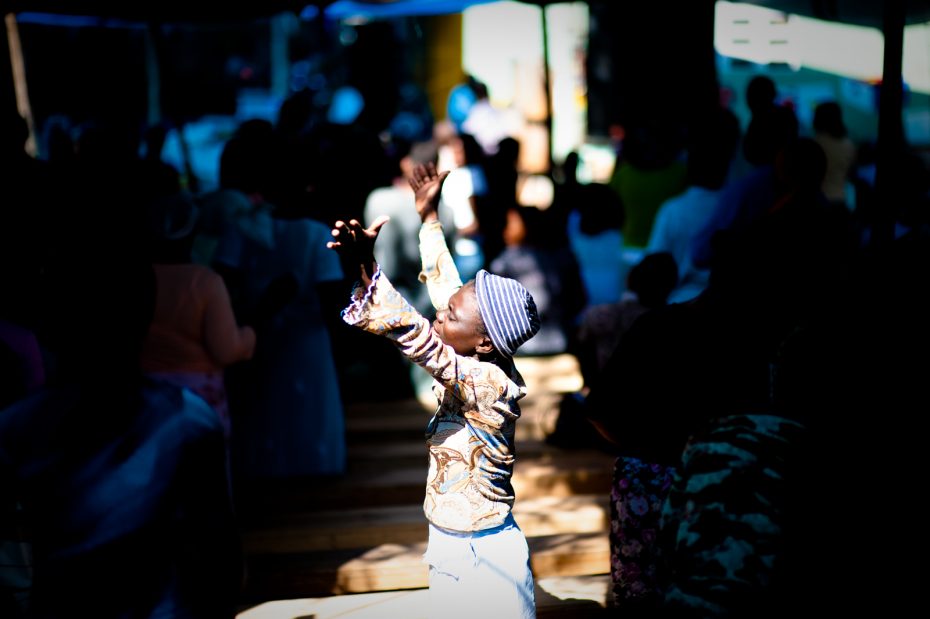
Every day, I’m hit with a headline in the news that leaves me feeling helpless. Acts of violence and hate seem to be happening more than ever. So this month for our “Totally Worth It” series, we’re highlighting stories and people who are lighting up the world through acts of compassion and love instead of hate.
Continue Reading ›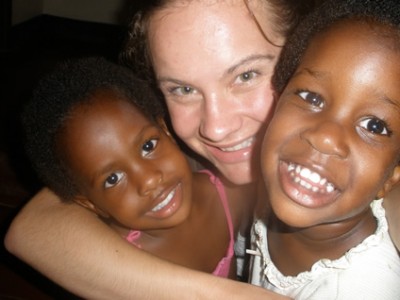
Three Things African Children Have Taught Me
No matter how difficult their situation, children in Africa cope with immense suffering. Is this because it’s the only life they’ve known?
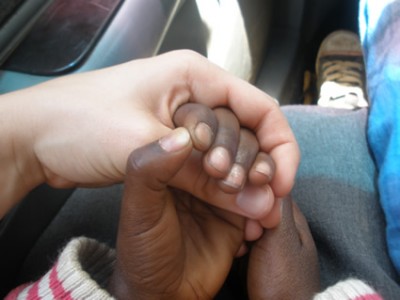
Holding Hands in the Kibera Slums
Bouncing over piles of trash and splashing through rivers of raw sewage, Katy held James’ hand in the front seat of the car, telling herself it was to cheer him. Later she would realize that she needed his hand to steel her and keep her brave.
How I Came to Compassion
I believe all children growing up, regardless of which corner of the world they were born into, will always have a dream of what they want to be when they grow up. Some live their dream well; others are not lucky enough to live their dreams.
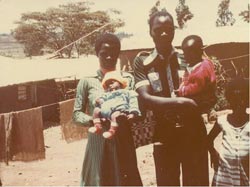 As a child, I held onto my dream despite the glaring poverty that threatened to kill it. I dreamed I would be some sort of a great leader when I grew up. My parents always reminded me that it would be important to work hard in school and trust in God in order for my dreams to come true.
As a child, I held onto my dream despite the glaring poverty that threatened to kill it. I dreamed I would be some sort of a great leader when I grew up. My parents always reminded me that it would be important to work hard in school and trust in God in order for my dreams to come true.
Childhood memories are still fresh in my mind. I grew up in a neighborhood of 10′ x 10′ shelters made out of sticks, mud walls and iron sheet roofs.
My father volunteered as a church planter in the slums while my mother made and sold African attire known as ‘Kitenge’ in a small market nearby.
I watched one of my sisters die at age 3. I was only about 4 years old then.
Many children die before the age of 5 in my community. Perhaps that explains why most parents have many children — they have to take chances because they aren’t sure which ones will make it.
I am one of five siblings that survived. My eldest sister is 32 years old and I am the second oldest. I have a younger sister who is 25 and a brother who is 24. My youngest sister is 19.
Infrastructure is a great challenge in my community. There are no nearby hospitals or schools, so we remained isolated from the rest of the world.
Without medical coverage, a hospital visit in the neighboring town reaps hefty hospital bills. It is particularly hard for parents who cannot find employment.
As a result, many parents avoid taking their children to hospital for fear of being detained in hospital if they can’t afford the fees.
Only in serious cases is anyone taken to hospital and, even then, transportation is a challenge. Some of them never make it in time and die on their way.
Bitter herbs are common for most illnesses, and as a kid I dreaded saying I was sick because it was hard to stomach the bitter herbs going down my throat.
Sanitation was and still remains a great challenge in Kibera.
Residents answer the call of nature in buckets in the comfort of their small houses and pack the waste in plastic bags, which they throw out of their windows at night. This practice led to the rise of a new term — “the flying toilets of Kibera.” Curfew hours begin at 8 p.m. in Kibera, and puu-puu begins flying through the windows.
My father believed that the reason he was living in abject poverty is because he never had the privilege of completing his high school education. He resolved to give his children good educations if he could.
My family eventually moved from Kibera to Dandora, about half an hour east of the city of Nairobi.
Dandora is known for being the largest dumping site in Kenya, where crime and all sorts of evil reigns. Dad relocated the family to Dandora because the government was setting up public schools there and he wanted us to be in a neighborhood with public schools.
When we moved to Dandora, I started schooling immediately. My dad, together with five other families, founded Dandora Baptist Church. (more…)
Can Anything Good Come Out of a Slum?
My biggest fear in life is not reaching my God-given potential. And for the first 20 years of my life, I found myself being increasingly shaped by worldly values. That is, until I came face to face with Jesus!
Since then my Creator and Saviour has been helping me to weed out values that are contrary to those of the Kingdom and walking with me towards the dreams He’s planted in my heart. It’s been a step-by-step process of learning to be faithful with what He entrusts me with.
Of course, going against the patterns of this world isn’t easy, but the fruit of obedience is liberating! I wouldn’t want to live any other way. Life’s exhilarating when you’re dancing with a God of the supernatural.
Thanks to modern technology, I met a Compassion alumnus Paul Omondi through Facebook! Paul shared his testimony with me … It’s more than encouraged me to be all that I can be; it’s given me hope.
Paul completed the Leadership Development Program in Kenya years ago (a program that educates, trains and disciples servant leaders), was recently married (congratulations Paul!), and now works to help his fellow Kenyans escape the cycle of poverty in his role as a Community Development Manager.
But every achievement starts with a heart that dares to dream.
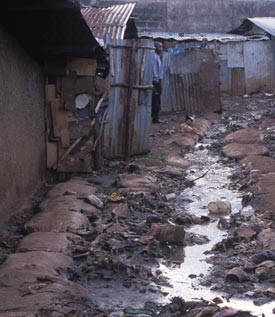
Twenty nine years ago in Kibera, 15 minutes outside of Nairobi, Kenya, a baby boy was born. Kibera is the biggest slum in Kenya. I can’t imagine what would’ve become of me if I was born there.
I’m reminded of the words of Nathanael when Philip told him that he had found ‘the one’ that Moses and the prophets wrote about. He said,
“Nazareth! Can anything good come from there?” — John 1:46a (NIV)
Can anything good come out of a slum?
Tune in all next week as Paul tells his story.
– Irene
Letters From Kenya
It amazes me how often God uses the “least of these” among us to teach us valuable life lessons. Having worked here for a little more than four months, I have already experienced this phenomenon many times, as the children we serve “speak” to me about things such as hope, faith, love and trust.
Last week, they spoke to me again from a place where you wouldn’t expect to find much of anything at all except despair, doubt, hatred and cynicism. (more…)


